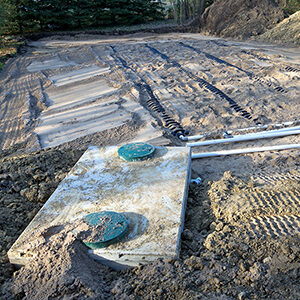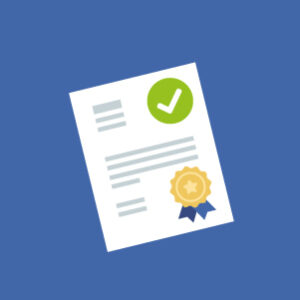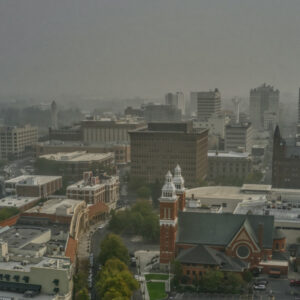- Home
- Environmental Health
- Wildfires, Smoke and Air Quality
- After a Wildfire
Contact Us
For general information and resources, dial 211.
Updated Sept. 5, 2023
After a wildfire, property owners have a lot to consider as they work toward cleaning up remaining structures and the land itself. Before you begin cleanup efforts on your property, review the following information about the potential hazards you may encounter and how and when to get started.
The most up-do-date, official information on this resource and fire response and recovery can be found on DEM’s Facebook page or on their website.
Understand the Hazards and Steps You Can Take
-
It’s hard to know where to start when you return to your home after an evacuation order is lifted. It is important that you do not return to your home until fire officials say it is safe to return. There are multiple hazards you should be aware of in addition to knowing what to look for in determining if your home is in livable condition. Here is an extensive checklist from the American Red Cross.
See Also
- American Red Cross Removing smoke smell
-
The ash from forest fires is relatively nontoxic and similar to ash that might be found in your fireplace. However, ash may contain unknown substances, including chemicals. Ash and debris from burned structures may contain more toxic substances than forest fire ash because of synthetic and other materials present in homes and buildings.
Care should be taken when handling any materials from buildings that are either partially damaged by the fire, such as salvageable building materials, or completely destroyed by the fire, such as ash and debris. Fire ash can irritate the skin, especially those with sensitive skin. If ash is inhaled, it can be irritating to the nose and throat and may cause coughing. Exposure to ash in the air can also trigger asthma attacks.
- Protective clothing and equipment should be worn to avoid skin contact and inhalation of ash and other disturbed material.
- Wear gloves, long‐sleeved shirts, and long pants when cleaning ash, and avoid skin contact. If ash does get on your skin, wash it off as soon as possible.
- Wear eye protection. Safety goggles that will seal against your face are the best choice.
- Well‐fitting dust masks may provide some protection during cleanup. Masks rated N95 or P100 are more effective at blocking particles from ash than dust or surgical masks. Many ash particles are larger than those found in smoke, so wearing a dust mask can significantly reduce, but not eliminate, the amount of particles that are inhaled.
- People with heart or lung disease should consult with their healthcare provider before using a mask during post fire cleanup.
- Materials must be thoroughly wetted to minimize dust, then packaged inside a 6-mil plastic sheeting liner and placed in an end-dump roll-off with the top of the roll-off sealed with the plastic sheeting to secure the contents during transport once the roll-off is loaded. You may also use sealed bags for this purpose. Do not transport unpackaged ash, debris or salvaged personal items.
- Asbestos may be present in ash and building debris. Please contact a certified contractor to perform abatement or cleanup. Asbestos is a major health risk concern and before solid waste facilities can accept fire demolition waste, an asbestos survey is required.
Solid waste disposal facilities typically will not accept fire demolition waste without an asbestos survey. If you attempt to dispose of the waste without an asbestos survey, the waste will be considered as containing asbestos and the cost of disposal can be four times the normal cost of fire demolition waste per cubic yard of material. Fire demolition waste requires special lined drop boxes for asbestos waste disposal. Consult with your waste disposal company for more information.
If you have questions about asbestos-containing materials or asbestos surveys, please contact Spokane Regional Clean Air Agency (SRCAA) at 509.477.4727 and ask to speak to an inspector. Please also refer to this Special Notice to property Owners Affected by the Gray and Oregon Road Fires – Asbestos & Fire Damaged Structures FAQs. More information can be found on the SRCAA website. - Metal debris must be washed clean of ash and debris prior to recycling.
- Do not allow children to play in the ash.
- Wash ash from toys before allowing children to play with them.
- Wash ash off household pets.
- Clean ash off salvaged items before removing from the site to avoid spreading hazardous materials. When needed, transport uncleaned items in sealed bags. Clean them in a designated location where the waste can be picked up for proper disposal.
- Avoid circulating ash into the air as much as possible. Do not use shop vacuums and other non‐HEPA filter vacuums, as they do not filter out small particles and can blow particles into the air where they can be breathed in.
- Keep ash wet to prevent dust and use as little water as possible.
- In most cases, gently wet sweeping indoor and outdoor hard surfaces followed by wet mopping is the best way to clean up ash residue. A damp cloth or wet mop may be all that is needed on lightly dusted areas. Avoid washing ash into storm drains whenever possible.
- Soil under the area where the ash and debris are deposited should be scraped to ensure that all ash, building debris, and hazardous materials are removed from the site.
-
Fires leave ashes, charred wood, melted plastics, damaged metals, burned appliances, roofing material, dead and dying trees and landscaping plants, cracked foundations and other debris. Hazardous waste can be present among the fire debris, such as asbestos-containing material and lead. We encourage property owners to be cautious about attempting fire demolition cleanup efforts. We strongly recommend that you consult with your home insurance company or a certified cleanup contractor prior to proceeding with cleanup.
-
See these suggestions from the United States Forest Service on how to clean up chemicals used to fight wildland fires from people, structures, vegetation, and animals.
-
Everyday items, such as household cleaners, fertilizers, and pesticides, contain dangerous chemicals that may have spilled in or near your home during the fire response. Be alert for leaking or damaged containers and household chemicals, such as caustic drain cleaners and chlorine bleach. Take these steps to prevent injury or damage:
- Keep children and pets away from leaking or spilled chemicals.
- Do not combine chemicals from leaking or damaged containers; doing so might produce dangerous reactions.
- Do not pour chemicals down drains, storm sewers, or toilets.
- Do not try to burn household chemicals.
- Clearly mark and set aside unbroken containers until they can be properly disposed.
- Leave damaged or unlabeled chemical containers undisturbed whenever possible.
- Do not put household chemicals in the trash. When discarding these products, they become household hazardous waste requiring proper disposal.
- Do not put chemicals in a trash bag. Use boxes or plastic tubs to transport.
- Transport chemicals in the trunk of your vehicle.
- Contact 509.324.1560 ext. 3 for advice on where to dispose or store the chemicals. You may also contact your local household hazardous waste disposal facility. Visit the Spokane Kootenai Waste Directory for contact information.
-
Propane
If you have a propane tank system, contact a propane supplier, turn off the valves on the system, and leave the valves closed until the supplier inspects your system. Tanks, brass and copper fittings, and lines may have been damaged from the heat and can be unsafe. If fire burned the tank, the pressure relief valve likely opened and released the contents.
Oil
If you have a heating oil tank system, contact a heating oil supplier for an inspection of your system before using it. The tank may have shifted or fallen from the stand, and the fuel lines may have kinked or weakened. Heat from the fire may have caused the tank to warp or bulge. Non‐vented tanks are more likely to bulge or show signs of stress. The fire may have loosened or damaged fittings and filters.
-
Various methods of disposal for animal remains are permissible under Washington state law WAC 246-203-121. Please read the WAC to review acceptable methods.
If you have determined that burial is an appropriate method, be sure every part of the carcass is covered by at least three feet of soil; at a location not less than 100 feet from any well, spring, stream, or other surface waters; not in a low-lying area subject to seasonal flooding or within a 100-year flood plain; and not in a way likely to contaminate ground water.
For information about other methods of animal remains disposal, please call 509.324.1560 ext. 3.
-
Food exposed to fire can be compromised by heat of the fire, smoke fumes, chemicals used to fight the fire, and power outage as a result of the fire. Food in cans or jars may appear to be fine, but if they have been close to the heat of a fire, they may not be edible.
What You Should Know
- Heat from a fire can activate food spoilage bacteria. If the heat is severe, the cans or jars can split or rupture, resulting in unsafe food.
- Toxic fumes, which may be released from burning materials, are one of the most dangerous elements of a fire. The fumes can be hazardous, and they can also contaminate food.
- Chemicals used to fight fires contain toxic materials that can contaminate food and cookware.
- While some of the chemicals may be listed as non‐toxic to humans, they can be harmful if swallowed. These chemicals cannot be washed off the food.
- Any food or single service items (cups, napkins, food containers) stored in permeable packaging, such as cardboard or plastic wrap; toxic fumes can permeate the packaging and contaminate the food
What You Should Throw Away
- Any raw foods stored outside the refrigerator, such as potatoes or fruit, as they could also be contaminated by fumes; even food stored in the refrigerator or freezer can become contaminated by fumes, as the seals are not necessarily airtight
- Food from your refrigerator or freezer that has an off-flavor or odor when prepared
You should also discard foods that were exposed to chemicals, including the following:
- Food stored at room temperature, such as fruit and vegetables
- Food stored in permeable containers, like cardboard and screw‐topped jars and bottles
Canned Goods and Cookware May Be Safe
Canned goods and cookware exposed to chemicals can be decontaminated if they have not been subjected to severe heat. Wash canned goods and cookware that have been exposed to chemicals with soap and hot water. Then dip them in a bleach solution (1 teaspoon of bleach per quart of water) for 15 minutes, rinse, and let air dry.
Think About Refrigeration
The main concern with perishables stored in the refrigerator and freezer is the availability of electrical power. Refrigerated items should be safe, provided that the power is off for no more than about two hours. If the power has been off for more than two hours, see Food Safety During a Power Outage for more information.
-
It’s important to protect your lungs from health hazards like smoke and ash while cleaning up after a wildfire. If you cannot avoid the area, protect your lungs by selecting the right type of mask and wearing it correctly.
- Choose a mask called a “particulate respirator” that has the word “NIOSH” and either “N95” or “P100” printed on it. These are sold at many hardware and home repair stores and pharmacies. Choose a mask that has two straps that go around your head. Do not choose a mask with only one strap or one with straps that just hook over the ears.
Note: N95 masks do not protect you from vapors or fumes.
- Choose a size that fits over your nose and under your chin. It should seal tightly to your face. These masks do not come in sizes that fit young children.
- Do not use cloth face masks, bandanas (wet or dry), paper or surgical masks, or tissues held over the mouth and nose. These will not protect your lungs from wildfire smoke or debris.
- Place the mask over your nose and under your chin, with one strap placed below the ears and one strap above.
- Pinch the metal part of the mask tightly over the top of your nose.
- The mask fits best on clean‐shaven skin.
- Throw out your mask when it gets harder to breathe through or if the inside gets dirty. Use a new mask each day if you can.
- It is harder to breathe through a mask, so take breaks often if you work outside.
- If you feel dizzy or nauseated, go to a less smoky area, take off your mask, and get medical help.
- If you have a heart or lung problem, consult with your doctor before using a mask.
- Remove earrings and jewelry before using the equipment to prevent catching them on the respirator.
- Check in a mirror to ensure that your respirator fits properly.
- Choose a mask called a “particulate respirator” that has the word “NIOSH” and either “N95” or “P100” printed on it. These are sold at many hardware and home repair stores and pharmacies. Choose a mask that has two straps that go around your head. Do not choose a mask with only one strap or one with straps that just hook over the ears.
-
For information about protecting yourself and your family from the effects of wildfire smoke, visit the Air Quality and Wildfire FAQ.
See Also
Pediatric Environmental Health Specialty Units Children’s Health & Wildfires
-
Your well or septic system could be adversely affected by fire, power outages, equipment failure, or contamination of water supplies. Visit Wells and Septic Systems After a Fire for more information.
See also
Centers for Disease Control and Prevention Disinfecting Wells After a Disaster
-
If you do not have water that you know is safe, it is possible to purify the water for drinking purposes. Start with the cleanest water you can find and treat it by boiling it or by treating it with a chemical disinfectant. Visit the CDC website for more information.
Taking Care of Yourself and Others
-
One of the best and most effective ways to help is to donate money to organizations that are already positioned to help communities affected by natural disasters. If you are looking for ways to give, please consider the following:
- Visit the American Red Cross website and select “my local Red Cross” to ensure your donation stays in the Inland Northwest.
- Donate via the Innovia Foundation Wildfire Emergency Response Fund for Eastern Washington.
Are you looking for ways to take part in future emergency response efforts in our community? Consider applying to join the MRC.
-
After a natural disaster, it is normal for you and your family members to feel a wide range of emotions. Just like rebuilding your home, getting the help you need is an important part of the recovery process. Dedicated help is available to you—free of charge.
Disaster Distress Helpline 1.800.985.5990
The first national hotline dedicated to providing year-round disaster crisis counseling. Call to connect with a trained counselor. Services for deaf and hard of hearing callers available. Provided by the Substance Abuse and Mental Health Services Administration (SAMSHA). Learn more
Emotional Recovery
For more information about emotional recovery, see this information from the Red Cross.
988
If you or someone you know are currently experiencing a crisis, call 988 for immediate support. Available 24 hours a day. English and Spanish.
For Kids
Children also feel the effects of natural disasters—both in terms of changes to their daily routine and having their own concerns about safety for themselves and their loved ones. See this information for ways to talk with your kids and help them cope.
- American Red Cross Building Resilience in Children Through Coping Skills
Red Cross Kids Videos
Portions of this content adapted from materials produced by Chelan-Douglas Health District.



